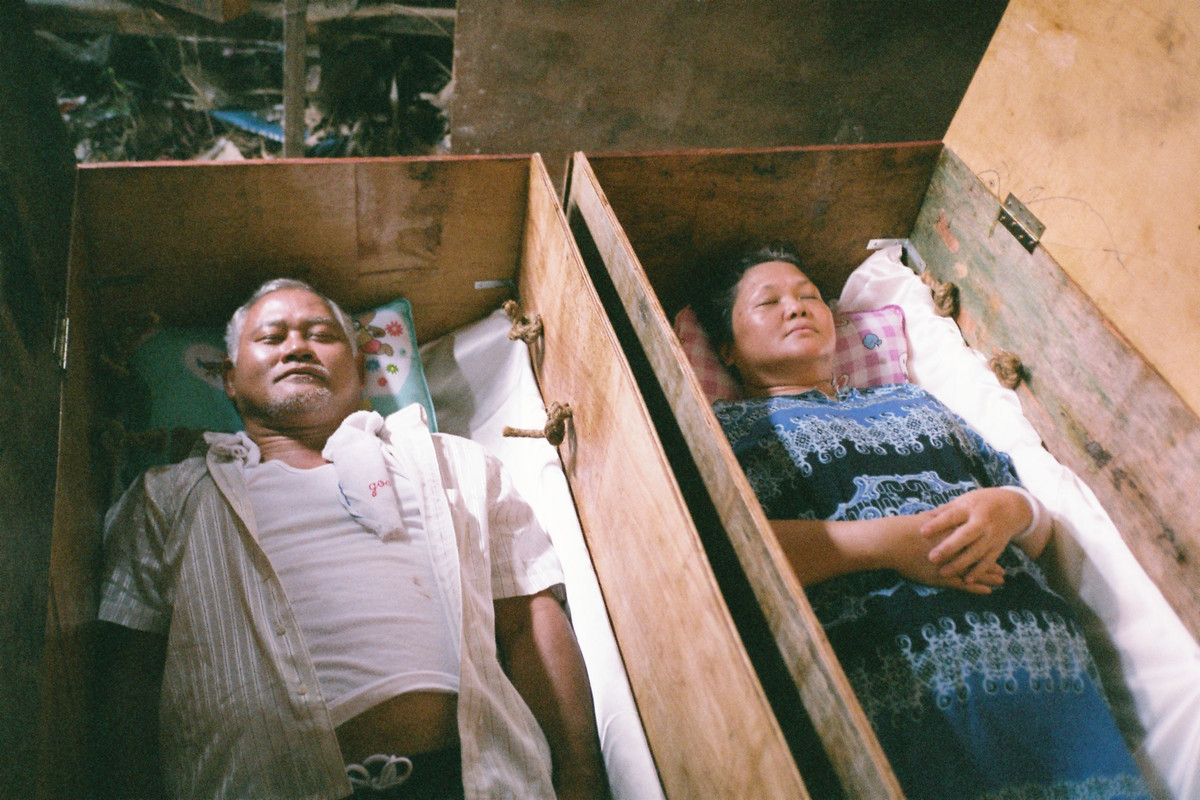Weeping Birds tells the story of an old couple who take old age and death as a joke.
—
Grace Yu: What was your process or journey to making the short film Weeping Birds?
Chan Teik Quan: It wasn’t really a challenge for me, because when I was making this film, it was actually inspired by a conversation my aunt and my uncle had and also my parents, they were talking about what's going to happen after this. So they were talking about preparing for each other's funeral, because we as Chinese people, we don't want to burden our children in a way—you have this mentality. So they were talking about paying for their own funeral and preparing for all that prior to their death.
I found it very interesting because the way they talked about it was very chill. It's kind of a scary topic, but my family, they took it as something part of life. So that really inspired me to write a story. So it wasn't really a challenge. And also, I always had my uncle, my aunt, my parents with me to really understand the whole topic about passing away. And also initially, the characters weren't supposed to be like that. I remember my mom telling me, it's going to be a challenge for my parents—because I wanted to cast them. They told me it's going to be a challenge because they're not professional actors so it's hard for them to act. So what happened was, I changed the characters to fit into their personality and attitude. Certainly, they don't really have to act, they just have to be themselves in the film. So what you see in the film, it's just my parents being themselves.
GY: Is there anything you would want them to know before or after seeing the film?
CTQ: I want them to watch it with an open heart because it's hard to judge it as a film. It's kind of like a documentary as well because the story is kind of real. I want the audience to watch it as they're watching a home video, like you're watching something very personal in my family's collection.
GY: Yeah, that's a good perspective to have. Another way of phrasing the question, is there something you hope that people will take away from the film? Or do you hope that people will come in with no anticipation and just receive it? Is there a type of response that you want?
CTQ: The core message of the film is to appreciate time and also the people around us. It's not just people, actually. Everything around us is impermanent, things will always change. So I want people to realize that. That is most important, to realize that things will change.
GY: Can you tell me a little bit about pre-production, production, and the actual making of the short film?
CTQ: This is actually my Final Year project. So when I decided to cast my parents, my lecturer was like, "No, this is your final project, you need to take it seriously. You're supposed to cast actual actors." He was concerned about my parents not being able to do it. And we tried, we tried to look for actors. And none of them actually fit the role. So I'm just going to cast my parents, I don't want anyone else to play these roles. I remember when I pitched this story to the people in my university, I told them that this film is going to be something that I have when my parents are gone. My mom actually passed away late last year, so it's actually very fortunate for me to have made this film. So now when I look at it, I still have a piece of my mom. It's something that can still remind me of my mom's existence in a way.
GY: When did you wrap on the film, and how long was your shoot?
CTQ: The shoot was only five to six days, but the whole process—starting from the pre-production to the post-production—took us eight months. And the production part, I feel like that is the best thing that has happened to me because we had so much fun. Because everyone on set, they're all my good friends and my parents were on set. So they met my friends and then my friends met my parents. We were just having so much fun. We stayed in a homestay. We were all just chilling and we went and shot.
GY: Do you have any other thoughts you want to share?
CTQ: I just have something to say to young filmmakers and artists: it's kind of a special thing that we can create. I feel like we should take this talent to immortalize people. There are portraits being painted back then, and then there are really iconic pictures being taken. And all the subjects are actually immortalized. I feel like it's actually quite important that we use this ability to immortalize people who we love. Yeah...because this film is a way for me to immortalize my parents because it's going to be there forever even though my parents are not.

